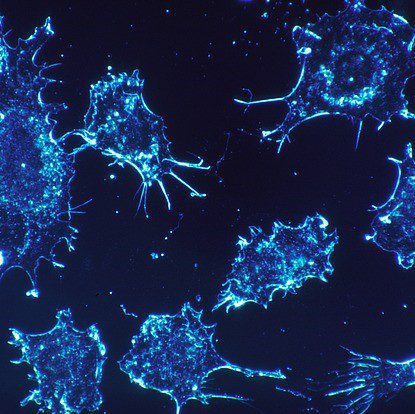Dr. Jung-Mo Ahn, associate professor at Dallas University in Texas, created a molecule that kills a broad range of treatment-resistant cancers. The newly targeted group includes triple-negative breast cancer.
According to SciTechDaily, the researchers were able to identify weaknesses in cells that have been overlooked. The discovery was also published in Nature Cancer. The complete SciTechDaily article is available here.
ERX-41 The Novel Compound
Dr. Ahn, of the School of Natural Sciences, is the study’s co-author and creator of ERX-41. Dr. Ahn has dedicated over ten years to the development of small molecules targeting protein-protein cell interactions.
Dr. Ahn’s research involves the use of isolated cells, mouse-grown human cancers, and also human cancer tissue.
Using a process called structure-based rational drug design, Dr. Ahn previously created therapeutic candidate compounds targeting treatment-resistant breast cancer and prostate cancer.
Currently, Dr. Ahn and associates tested ERX-41 to determine its effect on breast cancer cells including both estrogen-containing receptors and cells containing non-estrogen receptors.
The compound was also tested on healthy mice and there were no adverse effects observed.
About Triple Negative Breast Cancer (TNBC)
Although effective treatments against ER-positive breast cancer exist, very few options are available for triple negative cancer, which does not have receptors for progesterone, estrogen, or the human epidermal growth factor 2. Women aged forty or younger are the prime targets for TNBC and also do not have the same positive results as other breast cancer patients.
Dr. Ahn explained that it took the team years to find out which protein was affected by ERX-41 but they never gave up.
The researchers found that ERX-41 did not attack healthy cells. However, when it was fed to mice, it successfully killed tumor cells whether or not the cells contained estrogen receptors. These cancer cells were located in human tissue which was taken from tumors after they had been removed from patients.
Other Cancers
ERX-41 has proven to be effective against hard-to-treat ovarian and pancreatic cancers and also glioblastoma, which is a lethal brain cancer. Dr. Ahn said that he is grateful for the opportunity to be of use to society.
ERX-41 is licensed to EtirRX in Dallas, Texas. The company plans to begin trials for ERX-41 in 2023.






